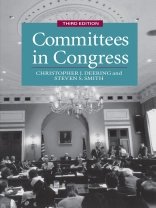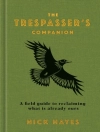Providing a comprehensive examination of the origins, development, and status of committees and committee systems in both the House and Senate, this edition carries on the book′s tradition of comprehensive coverage, empirical richness, and theoretical relevance in its discussion of these essential and distinguishing features of our national legislature.
While the second edition focused on the ‘post-reform’ committee systems, addressed the shifts in the internal distribution of power, and hinted at the forces that had already begun to undermine the power of committees, this edition updates that analysis and looks at the reforms that evolvied under the Republicans. It offers complete coverage of the rules and structural changes to the House and Senate committee systems. It extends its discussion of committee power and influence in the context of the ‘Contract with America, ‘ Republican reforms, and the inter-party warfare on Capitol Hill.
Mengenai Pengarang
Steven S. Smith is professor in the School of Politics and Global Studies at Arizona State University. He also is the Kate M. Gregg Emeritus Professor of Social Sciences and former Director of the Weidenbaum Center at Washington University. In addition to Wash U, he has been on the faculties of the University of Minnesota, George Washington University, and Northwestern University, and was a senior fellow at the Brookings Institution. He is the author or coauthor of Politics Over Process: Partisan Conflict and Post-Passage Processes in the U.S. Congress (2017), The American Congress (10 editions, 1995-2019), The Senate Syndrome: The Evolution of Parliamentary Warfare in the Modern U.S. Senate (2014), Party Influence in Congress (2007), The Politics of Institutional Choice: The Formation of the Russian State Duma (2001), Politics or Principle: Filibustering in the United States Senate (1997), Call to Order: Floor Politics in the House and Senate (1989), Managing Uncertainty in the House of Representatives: Adaptation and Innovation in Special Rules (1988), Committees in Congress (1984, 1990, 1997).












